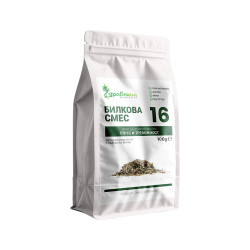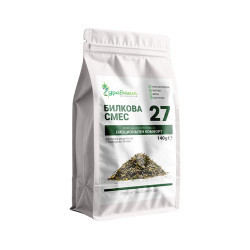Stress is a body reaction that impacts a person's physical, mental, and emotional health.
We live in a world that has become "everything at any price" combined with information overload, the result of which is mental overload.
Although we have access to a variety of sources on how to deal with stressors and free our minds from accumulated negative energy, more and more often people report that they suffer from feelings of anxiety, panic attacks, nervous breakdowns, headaches, insomnia, and gastrointestinal problems.
What are the main reasons for stress to become a part of human daily life? How to deal with this problem and restore balance in your life (and body)?
Am I stressed?
Do you wake up at night and have intrusive thoughts? This is a problem.
Are you getting nervous more and more often? Have your eating habits changed (don't eat at all or eat twice as much)? Do you feel more and more tired, can't sleep, and have you "unlocked" new fears? All this again is a problem.
Do you get anxiety attacks, or panic attacks that are accompanied by palpitations, dizziness, and nausea? Big problem.
These are the unpleasant "hints" with which the body warns that something is wrong with you. And accordingly, it is necessary to listen to him and take measures to regain your balance before you "stepped" into deeper and more dangerous waters.
Of course, there are not always visible symptoms that "alarm" that we are under stress. Sometimes you manage to keep the pressure of the hectic everyday life and the excessive tasks at bay, but even in such moments, the accumulated tension at some point escalates.
It is also important to specify that stress can also be short-lived. This is, for example, the temporary worry before an important event. Likewise, it can be beneficial as it helps the body adapt to new situations.
However, when the stress lasts for days or months, then we talk about chronic stress. It can lead to negative consequences on a person's mental and physical health, such as fatigue, nervousness, depression, and serious diseases of the cardiovascular system.
What kind of stress am I suffering from?
The first type of stress is oxidative stress (OS). It can be caused by several factors such as improper nutrition, environmental pollution, exposure to UV rays, etc. Its consequences are accelerating the aging process and increasing the risk of diseases such as diabetes, lung disease, and cancer.
To cure this type of stress, it is recommended to avoid polluted places - to take more frequent walks in nature, you can visit salt baths and increase the intake of foods that contain vitamins C and E.
Post-traumatic stress disorder (PTSD) is the second type. It can usually appear as a result of experiencing mental or physical trauma. The symptoms are individual for each person and depend on the situation that led to this type of stress.
They can be expressed in repeated dreams, nightmares, avoidance of a specific topic and place depending on the experience, as well as fatigue, insomnia, anxiety, and depression. Here, a specialist must be visited, and the necessary treatment prescribed.
The third type of stress that occurs more often in the world around us is emotional. It is a mental condition that can be triggered by personal worries, emotional or physical problems, and work or relationship stress.
In most cases, the symptoms are negative thoughts, anxiety, and dissatisfaction with oneself, which negatively affects the person's lifestyle. It is recommended to nip the problem in the bud in order to avoid depressive states. Therefore, if you suffer from this type of stress, visit a psychologist to guide you to the right treatment.
The last type of stress is physical. If the body is exposed for a long time to physical loads or actions, then you are dealing with physical stress. Of course, it can appear from training (mainly strength), depending on the work you do or injuries.
The last type of stress is physical. If the body is exposed for a long time to physical loads or actions, then you are dealing with physical stress. Of course, it can appear from training (mainly strength), depending on the work you do or injuries.
As a result of physical stress, the body produces cortisol (stress hormone) and adrenaline, which lead to increased blood pressure, heart tension, nervousness, exhaustion, and a decline in the immune system.
To prevent this kind of stress, you need to try to find a balance between work/training and rest. You can also visit a specialist who will prescribe a special diet according to the needs of your body.
What is burnout?
Burnout comes from the English word burnout, which in exact translation means "overburn". In recent years, it has gained popularity in the corporate world and is associated with extreme emotional exhaustion from too many duties at work.
The high-tech world pushes us to take on overwhelming tasks. And this affects both our physical health from the point of view of insomnia and nutrition and our mental health - we feel more tired and dissatisfied with ourselves.
Symptoms can be expressed in a decline in the immune system and frequent illness, insomnia, low concentration, and irritability.
If you've ever felt tired from work, it's time for a break! Regardless of whether it will be planned - sea or mountain, or you will just stay at home, the important thing is to "give" yourself valuable time alone with yourself, where your mind is not engaged in anything.
Find a way to balance work and personal life. Find your hobby, exercise, eat healthy and rest more. Work is not all life!















